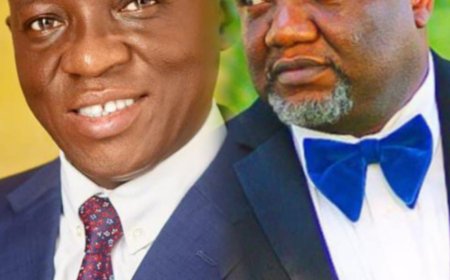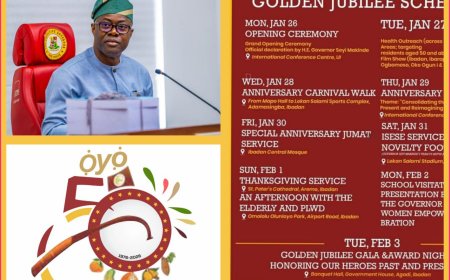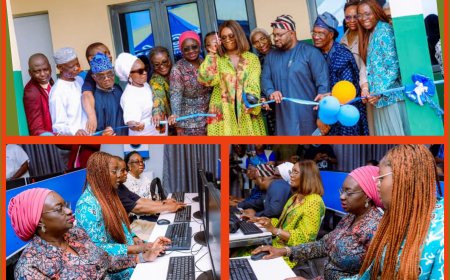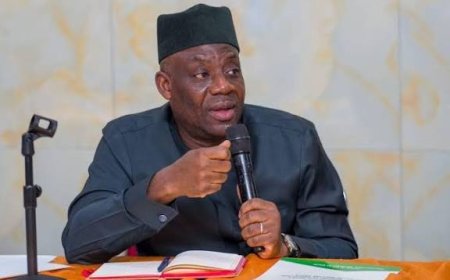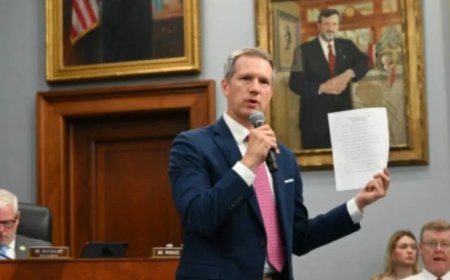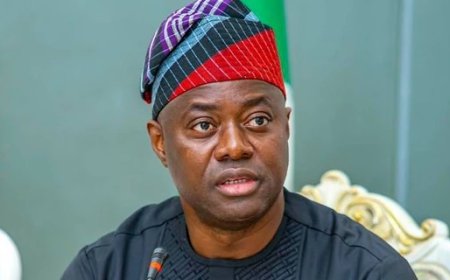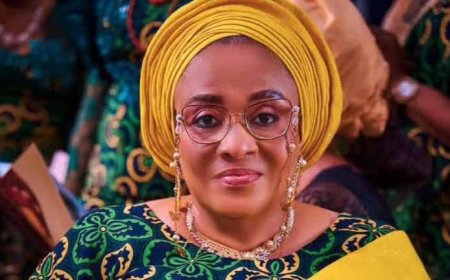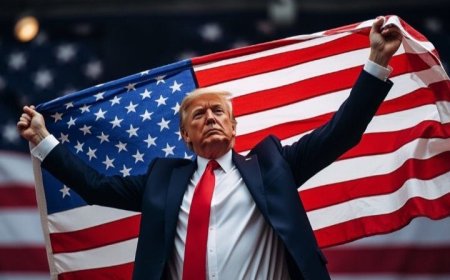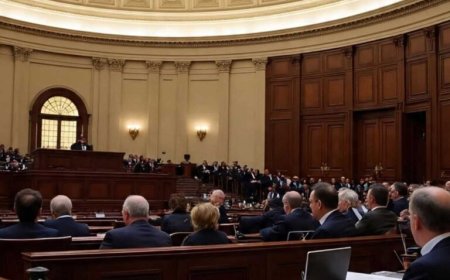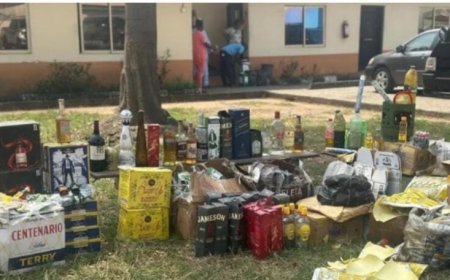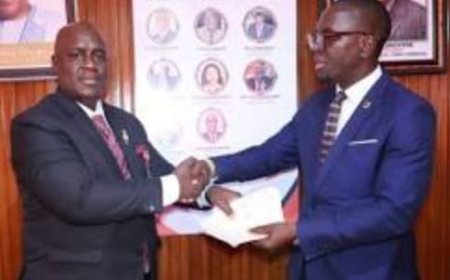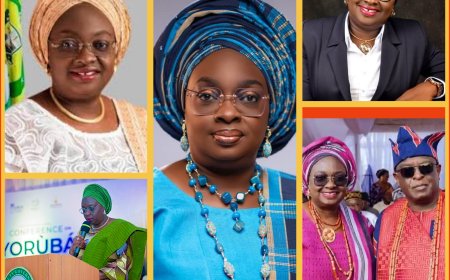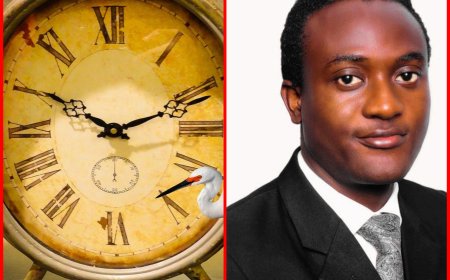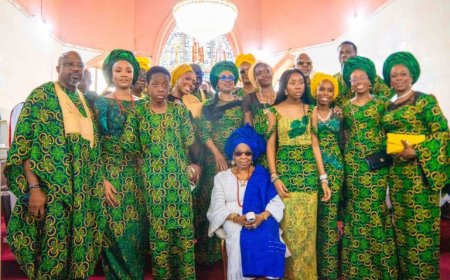Tribute to Ọnaọlapọ Ṣolẹyẹ: An Ọmọluabi and an Epitome of Selfless Public Service

By: Babafemi A. Badejo, Ph.D
A friend of mine, while speaking about the competitiveness of the Nigerian claimed that a fetus in the tummy, while listening to the gist of his mother with others about the hardship outside in a country of over two hundred million must hit the ground running at birth. Unlike the situation in other African countries, for the Nigerian, “there is hurry in Africa”. Everything must be done kia kia as if delay is dangerous. A form of an endless rat race!
The tons of problems in terms of lack of infrastructure on about everything and especially health, as well as the constant chasing of simple things of life all take their toll on the Nigerian. Little wonder that the average lifespan of a Nigerian male as estimated in 2020 is 54 while that of the female is 56 years. This gives an average lifespan for the Nigerian as 55. The African average lifespan in 2024, is reported to be 64.38 years. Nigeria and Lesotho, reportedly have the lowest lifespan on the African continent. So, to live up to 90 in a country with the average lifespan of a male human being less than 60 years is a salutary fit.
It is sad that Dr. Onaolapo Ṣolẹyẹ has left us as by way of death. I can no longer seek clarifications on so many issues. Death is the unavoidable reality that will mark the end of even the best amongst us. The Yoruba often celebrate the lives of persons like Baba Ṣolẹyẹ who left after 90 years. Beyond celebrating the life of Baba Soleye, it is necessary to deliberately indemnify the life and legacies of Baba Soleye. But it's very painful for me that such a nice soul is no more. Writing this tribute brought a mix of feelings that I had to courageously subdue by taking some solace in the nature of the life lived by Baba Soleye. I will be unjust to posterity not to say a few things about my numerous lived experiences with Baba.
Dr. Ṣolẹyẹ came on a scholarly resident visit to the University of California, Los Angeles in about 1979/1980, when I was a graduate student there. By fate and the script of the pre-destined as some would say, we bumped into each other and hit it off. He did not allow the 21 years with which he was older than I to stand in the way of a very healthy relationship. I recall events surrounding our numerous weekends spent together till he left as if we were age mates. We partied and socialized with other Africans. Baba took a lot of time to share elderly knowledge and guidance with me and subsequently introduced me to late Prof. Oyelẹyẹ Oyediran, and General Oluṣẹgun Ọbasanjọ.
Our camaraderie continued on my return home. I depended on him for life guidance. I almost nearly copiously took after his lifestyle, as I was very convinced of his personality. For instance, on a very mundane issue, that had a tie with strong moral values, I chose to wear the cheapest dress as he did. Initially, my wife did not like my appearing in my “Ankara danshiki” however great the event was considered to be. I asked Dr. Ṣolẹyẹ how one handles a situation like I was facing. He readily told me how he handled his: he told his wife to use the front door to an event and he would use the back door, if she was ashamed of his dressing. It ended the dialogue for them and I adopted the same.
With our seeming “Father-Son” level of relationship, I did not need to tell him nor sought his permission to make him an Executor of my first Will (when I had only books and a car to bequeath) in 1988 when people scared me on pursuing the landmark case I took on behalf of my daughter with respect to the federal character clause in our 1979 Constitution. I knew he would guide my family aright if I was indeed murdered.
In spite of being a bosom friend of General Ọbasanjọ who had saddled us with the federal character clause that his Supreme Military Council left in tact, Baba Ṣolẹyẹ encouraged me. He blessed and supported my move. I was asked by some to write my Will as it was predicted that the IBB Government would bump me off the face of the earth. I cannot recall how much time he spent guiding me on many issues of life, including the bureaucratic processes to acquire a plot of land at Igbẹba in Ijẹbu-Ode.
He taught Sociology at the University of Ibadan and nurtured so many in senior positions in today’s Nigeria. He retired as an Associate Professor. However, he was better known years ago for the roles he played in shaping Ogun State at the beginning as Commissioner for Finance and Industry. He later served the nation as the Minister of Finance without the accoutrements that went with that office and without enriching himself, family and friends.
The night before he was sworn into office in 1984 as Buhari/Idiagbon administration’s Federal Minister of Finance, he chose to have dinner with my family at my University of Lagos accommodation at Oguntọna Crescent, Gbagada, (just as we used to do at the Married Students Housing on weekends at UCLA). While at UCLA, many a time, he slept in Yinka, my three-year-old daughter’s room on weekends before I drove him back to his apartment to prepare for the new week.
Having a Sociologist as Minister of Finance, meant sensitivities for people as opposed to “the invisible hand of market forces”, that is an article of faith for Economists. When Buhari/Idiagbon got into office, the Nigerian naira had moved downward from one naira fetching one dollar, eighty-two cents to one naira fetching one dollar fifty cents. Chief Ọbafemi Awolọwọ (Awo) had warned about the Nigerian economy during the first term of President Shagari that the ship of state was drifting towards a rock and would sink. But Prof. Emmanuel Edozien, a professor of economics at the University of Ibadan, a close friend of General Ọbasanjọ and Special Adviser to President Shagari on the economy had shut Awo up and argued that there was nothing wrong with the ship of state as the economy was sound. The 1983 presidential elections held and President Shagari was said to have won with a landslide by Prof. Walter Ofonagoro of the National Party of Nigeria. Awo chose not to approach the courts as he had done in the past. He instructed his followers not to go in the streets. A few months after being sworn into a second term and with huge dissatisfaction, President Shagari was overthrown by General Muhammadu Buhari, supported by his Chief of Staff Supreme Headquarters, Brigadier Tunde Idiagbon on December 31, 1983.
With the IMF claim that the naira was overvalued, the Buhari/Idiagbon administration, supported by Dr. Soleye as Minister of Finance resisted the devaluation being pushed on Nigeria to accept one naira is equal to one dollar. They drastically reduced Nigeria’s imports. In 1984, they aimed to reduce the quantity of naira in circulation by wiping out the resources that politicians had stolen and hidden in their houses by redesigning the naira within two weeks, and fixed a maximum amount that could be changed without explanation. Air/sea/land borders were closed during the naira swap process.
However, my late friend Dr. Onukaba Adinoyi Ojo, an investigative journalist got wind of the ferrying into Nigeria, of 53 suitcases that were suspected to be old naira notes from Saudi Arabia (the naira was once used internationally), for the purposes of swapping the huge quantity. Major Mustapha Jokolo, as he then was and ADC to Major-General Buhari had reportedly supervised the ferrying of the suitcases of an Emir without customs check. Former Vice-President Atiku Abubakar who was at the airport as a senior customs official confirmed to Dr. Ojo that indeed 53 suitcases came in unchecked and he was to be fired but Dr. Ọnaọlapọ Ṣolẹyẹ, as the supervising-Minister for our customs, on the basis of fairness and justice resisted the firing of Atiku for being truthful. On my wanting to know what really happened, Dr. Soleye, as a friend, told me that the 53 suitcases were eventually checked and that they did not contain naira notes and that they were the personal effects of an Emir who was reportedly related to Major Jokolo.
But the currency redesign did not change the value of the naira as demanded by the IMF. It became difficult to sell our crude oil in exchange for dollars. How I wish I could call Dr. Ṣolẹyẹ now to clarify why our oil was not exchanging for dollars, and if the West boycotted our main export product for not following the dictates of the IMF. We had to resort to trade by barter. The world was not like today with so many alternatives with respective points of sale and sources of supplies of goods and services. There were China, India, Indonesia, Malaysia etc., but without competing products to sell like today. The idea of trading in crude oil in any currency other than the American dollar was unthinkable given the US power over the world. It was harrowing to be trading by barter. The word “essenco” joined the Nigerian lexicon. It was coined from two words: essential commodities, which were goods we had been socialized into but now unable to buy from the West. The atmosphere was ripe for another coup against a set of patriots that dared to think differently.
In came General Ibrahim Badamasi Babangida (IBB) after a coup that was externally driven but reportedly funded by Dr. Soleye’s very close friend from their Baptist Boy’s High School days who constantly called Baba Ṣolẹyẹ: Senior, MKO Abiola. I do not belong in the intelligence world and cannot confirm this account. But IBB gave us a number of legacies like building the Third Mainland Bridge and the city of Abuja that had been started by the Murtala/Obasanjo administration but received a flip when Gideon Orka tried to kill IBB in a counter-coup but failed and IBB ran to Abuja and the profligacy of consumption as opposed to production worsened. Two other IBB legacies were the exponential growth in corruption as he built Abuja and started carving out portions of the ocean as oil blocs to family, friends and allies. He became the grandfather of corruption. He also did the external biddings when he introduced the steady devaluation of the naira against the wish and will of Nigerians when he introduced the second-tier foreign exchange market (SFEM) that fueled what is now known as foreign exchange round-tripping. Forty years later, the budding industrialization and manufacturing we were promised are yet to materialize as the naira has continued to seek its level. Driving bye the carcasses of Odutola Industries Limited at Ijebu-Ode, as I did on March 1, 2024 could make any patriot cry. Many of such failed industrial ventures are all over Nigeria as bankers and Aboki money changers fed fat outsmarting all of us on currency round-tripping without production. Authority stealing that Fela Anikulapo Kuti taught us about has reigned supreme in our land since IBB.
I am very proud of Dr. Onaolapo Soleye, and everything he represented. I wish I could wake him up and make him reminisce on what we are going through today in the hands of the United Thieves of Nigeria (UTN). We have lost a quintessential role model on probity. A patriot that fiercely resisted selling us cheap for personal gains. A just human being who did not join the selling of national patrimony to family and friends alike. A very humble and fiercely loyal man to friendship, to myself, Oyelẹyẹ Oyediran and Oluṣẹgun Ọbasanjọ. He was an unassuming successful Nigerian who lived a simple life of integrity and great character. He was a man that the Yoruba would readily designate as an Ọmọluabi.
*Babafemi A. Badejo, author of a best-seller on politics in Kenya, was a former Deputy Special Representative of the UN Secretary-General for Somalia, and currently a Legal Practitioner and Professor of Political Science & International Relations, Chrisland University, Abeokuta. Nigeria.
What's Your Reaction?










